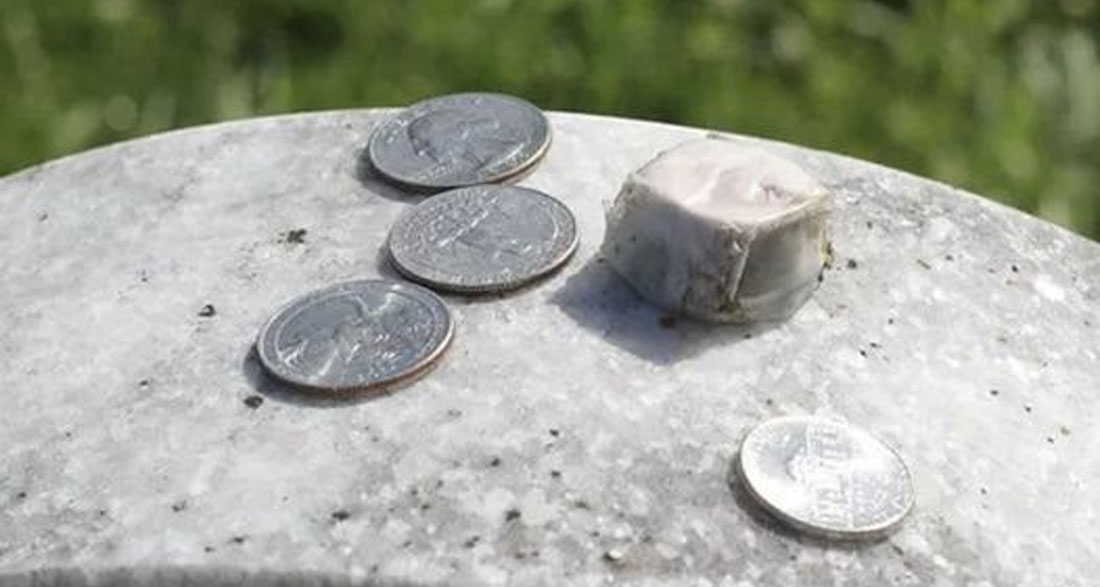The Story Behind Coins on Military Graves: Honoring Heroes with a Penny
When someone close to you passes away, it’s natural to look for ways to honor their memory. People often bring flowers or leave notes at their graves, but for those connected to military veterans, there’s a unique tradition—leaving a penny or another coin on the gravestone. This simple gesture carries deep meaning and has become a special way to pay tribute to fallen soldiers.
A Mystery with Ancient Roots
We don’t know for sure where this tradition began, but some believe it dates back to the Roman Empire. Romans would place coins on the graves of their loved ones to help them in the afterlife, hoping to give them a safe passage.
Some think that this old practice might be connected to today’s tradition of leaving coins on military graves, though historians like those from Snopes argue that the evidence is unclear.
Regardless of its ancient origins, this custom has become an important way for people to honor soldiers, especially for those who feel a strong connection to the military. Friends, family, and fellow soldiers want to find a meaningful way to show respect for those who made the ultimate sacrifice, and leaving a coin is one such way.
During the Vietnam War, this tradition took on even more significance. The war was controversial, and people found it hard to talk about their emotions openly. It became common to place a coin on a soldier’s grave as a way of paying tribute without having to engage in political debates or uncomfortable conversations.
By leaving a coin, people could show their respect in a quiet, meaningful way that didn’t stir up difficult topics.
The Meaning of Each Coin
Every coin left behind on a soldier’s gravestone carries its own message. Here’s what each type of coin represents:
- A penny means that someone visited the grave to pay their respects.
- A nickel signifies that the visitor and the fallen soldier trained together in boot camp.
- A dime means they served together, even if it was just for a short while.
- A quarter is the most powerful symbol—it shows that the person who left it was there when the soldier died, telling the family, “I was with them at the end.”
These coins not only show respect but also help bridge the gap between the living and the memory of the fallen. For families who visit the graves, seeing these coins can be a comforting reminder that their loved ones are still remembered and honored.
Coins as Symbols of Unity
Coins have always held meaning beyond just money. In the military, soldiers often exchange something called challenge coins. These coins don’t have any monetary value, but they are given as a sign of unity, friendship, and honor. They are traded between soldiers and kept as mementos of shared experiences.
Coins have been important symbols throughout history. In some cultures, they were seen as lucky charms or tokens of wealth. There are stories of people being buried with coins and other riches, believing they would need them in the afterlife.
A well-known story tells us that President Abraham Lincoln was buried with two dollars and fifty cents covering his eyes, showing that coins have long been a part of marking important moments.
A Small Gesture with Big Meaning
Placing a penny or another coin on a gravestone might seem like a small act, but it carries deep meaning. It’s a way to honor the incredible sacrifices made by soldiers and their families. These coins serve as a lasting tribute, reminding us that their service and dedication are things we should never forget. Though the coin itself is just a small piece of change, the meaning behind it is priceless.
Have you ever left a coin on a grave? What do you think about this touching tradition? Let’s hear your thoughts in the comments!

